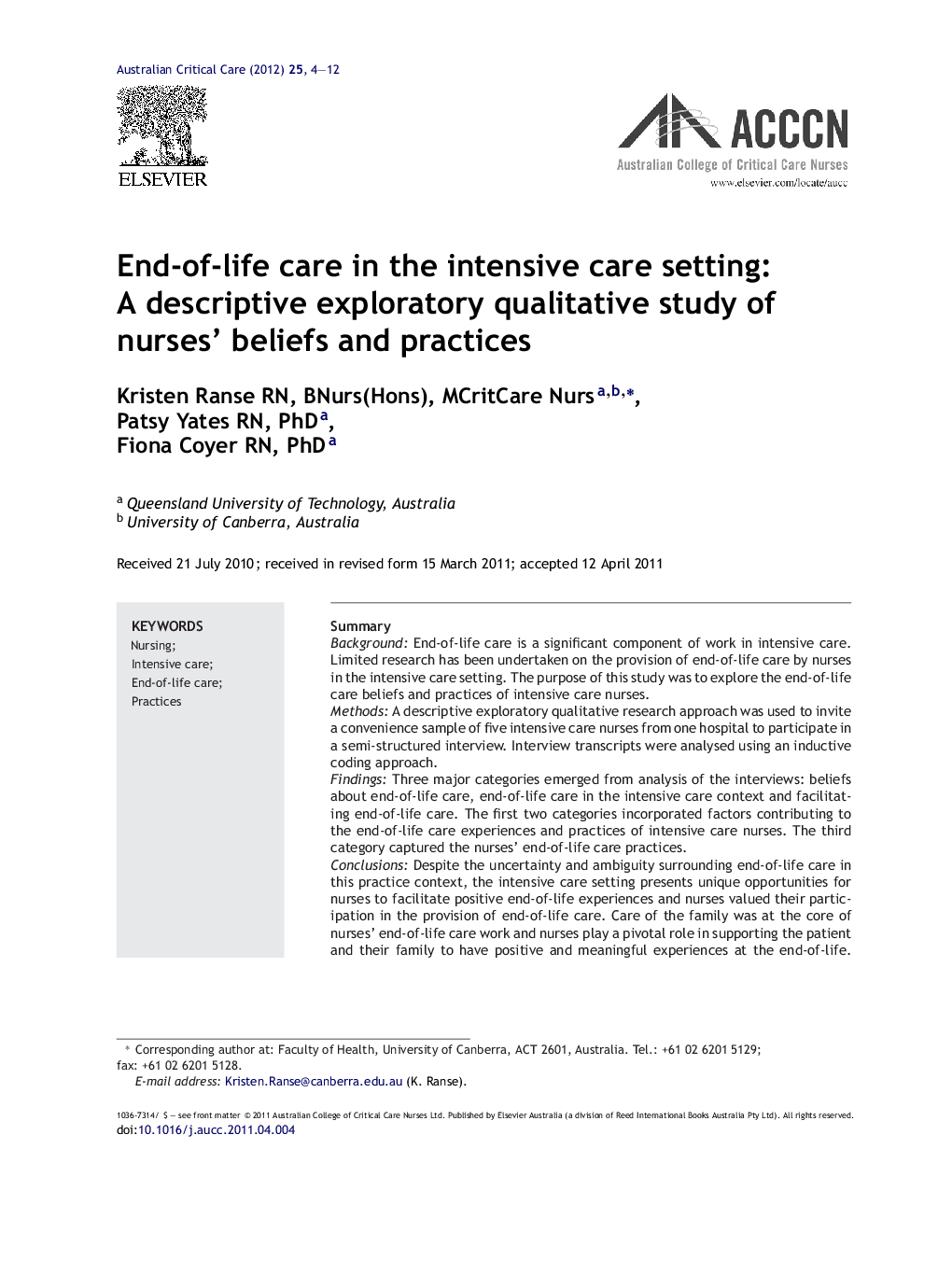| Article ID | Journal | Published Year | Pages | File Type |
|---|---|---|---|---|
| 2607453 | Australian Critical Care | 2012 | 9 Pages |
SummaryBackgroundEnd-of-life care is a significant component of work in intensive care. Limited research has been undertaken on the provision of end-of-life care by nurses in the intensive care setting. The purpose of this study was to explore the end-of-life care beliefs and practices of intensive care nurses.MethodsA descriptive exploratory qualitative research approach was used to invite a convenience sample of five intensive care nurses from one hospital to participate in a semi-structured interview. Interview transcripts were analysed using an inductive coding approach.FindingsThree major categories emerged from analysis of the interviews: beliefs about end-of-life care, end-of-life care in the intensive care context and facilitating end-of-life care. The first two categories incorporated factors contributing to the end-of-life care experiences and practices of intensive care nurses. The third category captured the nurses’ end-of-life care practices.ConclusionsDespite the uncertainty and ambiguity surrounding end-of-life care in this practice context, the intensive care setting presents unique opportunities for nurses to facilitate positive end-of-life experiences and nurses valued their participation in the provision of end-of-life care. Care of the family was at the core of nurses’ end-of-life care work and nurses play a pivotal role in supporting the patient and their family to have positive and meaningful experiences at the end-of-life. Variation in personal beliefs and organisational support may influence nurses’ experiences and the care provided to patients and their families. Strategies to promote an organisational culture supportive of quality end-of-life care practices, and to mentor and support nurses in the provision of this care are needed.
